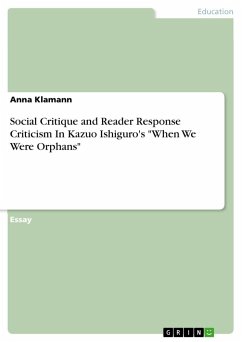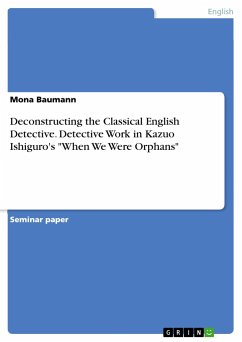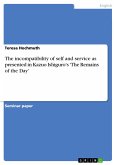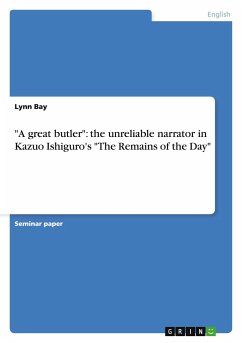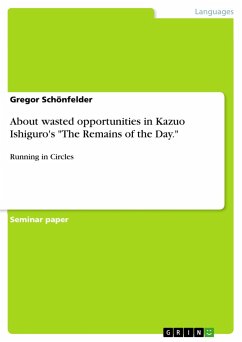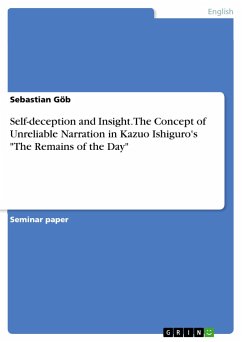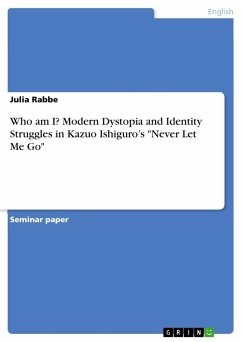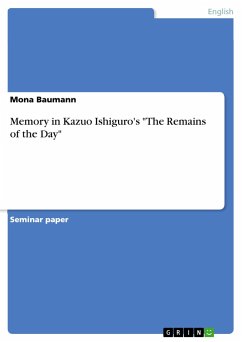Essay from the year 2014 in the subject Didactics - English - Literature, Works, grade: 1,0, Johannes Gutenberg University Mainz, language: English, abstract: In Kazuo Ishiguro's "When We Were Orphans", the surfeit labelling of Christopher Banks as a Sherlock Holmes evokes reader expectations of the Holmesian genre and lets the reader judge Banks and his methods more critically in the light of Holmes. The novel though defies reader expectations in terms of any detective formula fiction it starts to set out - but exactly those expectations and the refusal of their completion that bind Banks and the reader together. Banks's childhood view of what had happened to his parents mirrors the world of Sherlock Holmes and follows Banks into his adult world. It is the belief that, against all odds, a Sherlockian detective can solve the crime of his parents' disappearance. However, to make this possible the crime has to be one that equals the crimes in the world of Sherlock Holmes. As Banksadopts the personality of a Sherlockian detective because he labels himself one so does the reader expects certain personality traits because he sees this label. Banks and the reader fall into the same trap of believing that the narrative should go in a particular way because the ideas on and beliefs in detectives rely on a fixed formula. In debunking Banks as not being a "Sherlock" the novel ridicules the believe in archetypal heroes like Sherlock Holmes and in debunking the principle of a detective itself, in the denouement chapter, it ridicules not only Christopher Banks's life but also the reader's expectations. Thus it is not only Banks's world that gets disenchanted but the reader's world as well.
Hinweis: Dieser Artikel kann nur an eine deutsche Lieferadresse ausgeliefert werden.
Hinweis: Dieser Artikel kann nur an eine deutsche Lieferadresse ausgeliefert werden.

